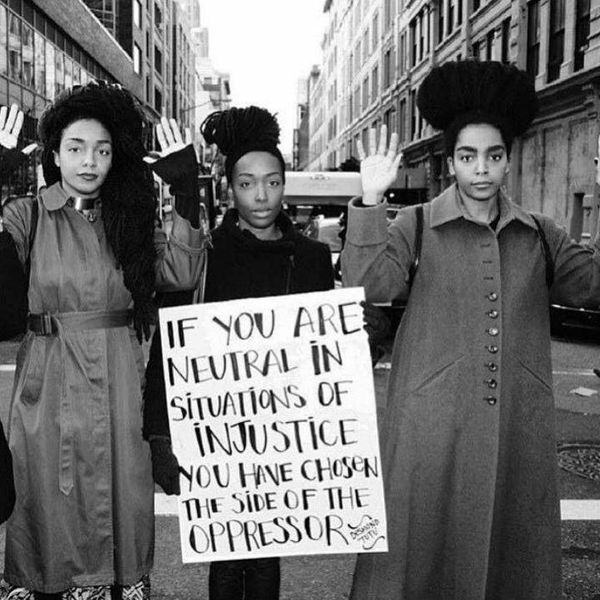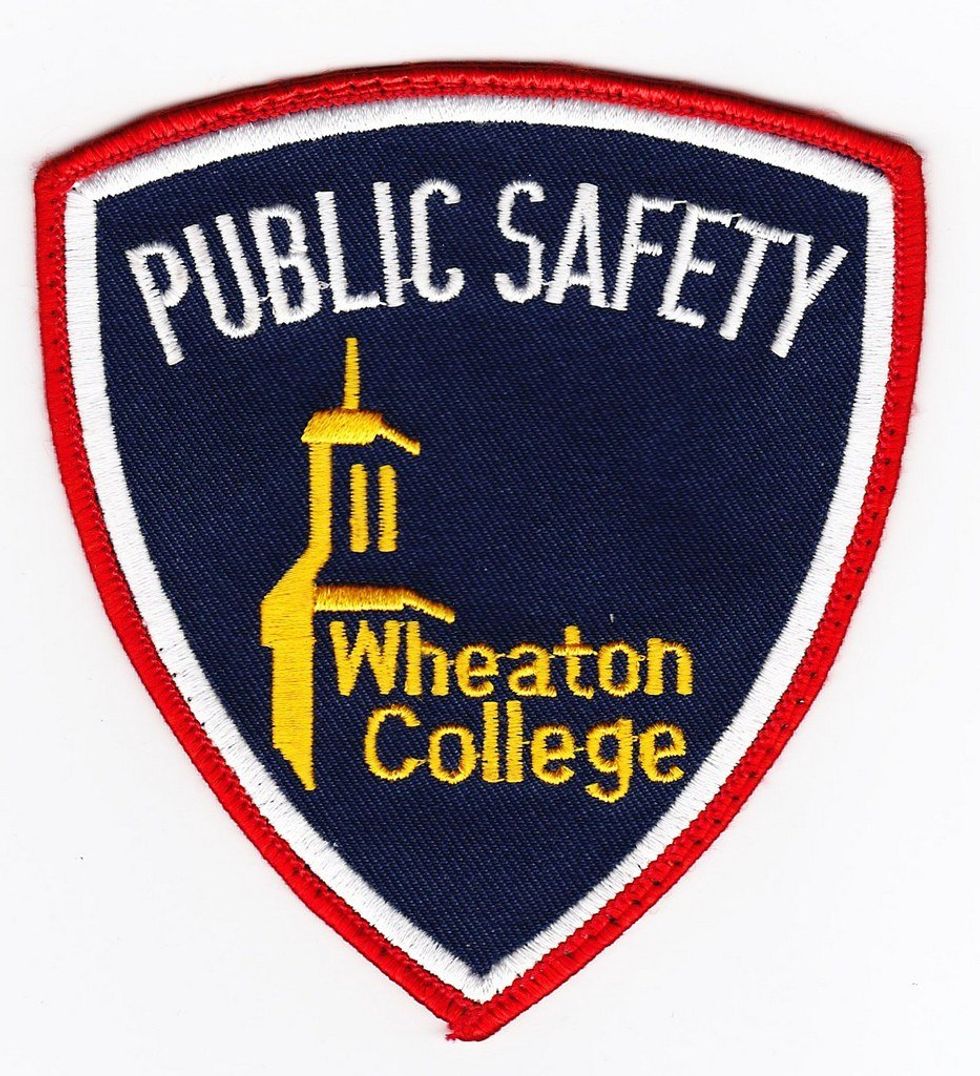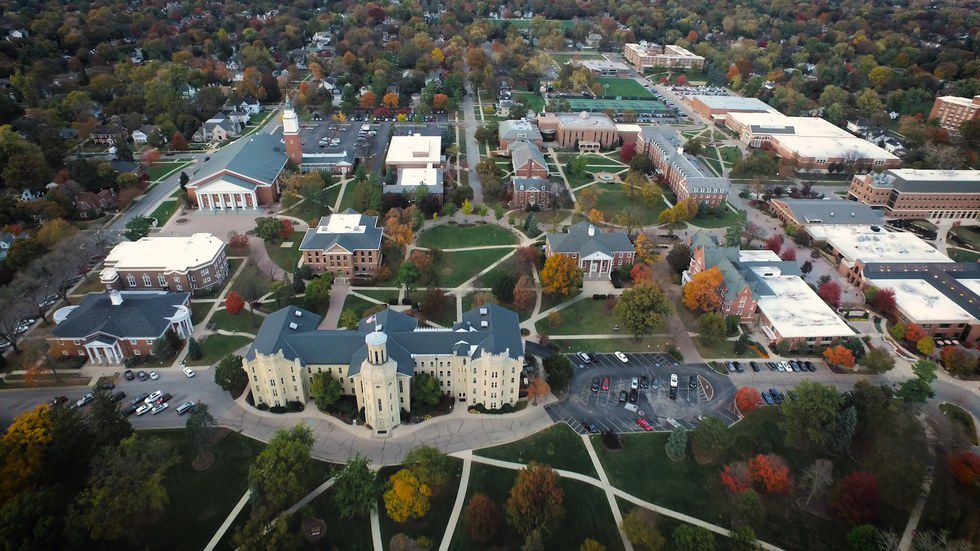When I read about the proposal for an armed public safety from The Record, I was hurt in two ways. The first being how insensitive the concept was to the Black and Latino/a groups on-campus, who despite being most at-risk for police brutality, were not invited to the conversation. Clearly it was fear, rather than love, that fueled this proposition rooted in privilege and mistrust of "the other". The second way was the realization that Wheaton College might sooner pay for deadly weapons rather than provide funding for say, a professor teaching Black Theology courses or increased scholarship funding for students of color. This witness becomes especially problematic for an institution advertising itself as a distinctively “Christ-centered” environment, and yet may go along with what similar institutions have enacted. I do recognize the real concerns of campus shootings in the US, but that is largely the result of a failing criminal justice system, inadequate gun safety laws, and societal norms licensing men to use violence to express their anger. So while I formally oppose having guns on-campus, I have dared to imagine what an armed campus safety would look like that avoids contributing to the dehumanization of the poor. This means not just focusing on the presence of guns on-campus, but demanding Wheaton College what structures and dynamics would be in place to prevent the loss of life if Public Safety is armed. My envisioning for the formation of a revolutionized Public force is listed below:
1. The Public Force should be armed only part-time.
Suppose a well-meaning police officer walked into the Office of Multicultural Development (OMD), eager to build relationships with all the students involved there. While some might make eye contact and welcome her, others (including myself) would be quite tense, and look to see if she is armed. The gun alone is a powerful tool that may suppress life, and represents a wall of domination rather than a bridge to dialogue. We must also recognize students who were grew up in militarized environments at home at and abroad, whose well-being may be hijacked in a safe place for students of color like the OMD.
2. The Public Force must include female officers.
It is not my intent to sexualize the force, but having women serving in the force would have a positive impact on this campus. This break in gender norms would teach Wheaton College men to respect women in authority, and be an excellent resource to women considering a career in law enforcement. Additionally, studies show that female officers are less likely to use deadly force than their male counterparts, a vital inclination that could save lives should difficult situations arise on-campus [1].
3. The Public Force must include those of diverse ethnic backgrounds.
We need a force that is able to grasp the real challenges faced by racial minorities at a personal level. As it is, Wheaton College is both a conservative and predominantly white institution, and creates social dynamics that do not easily push white students to advocate for diversity. As such, members of the force must be true agents of change and promote racial healing to the student body, and not participate in often disingenuous conversations seeking “racial reconciliation”.
4. Wheaton College must establish an Independent Task Force to review cases.
No one wants to read the headline “Unarmed Black Wheaton College Student Killed” when they pick up the morning newspaper, but the arming of Public Safety increases such a tragic possibility. Wheaton College must create a non-affiliated committee comprised of both local and national representatives who meet monthly to evaluate the Public Force. The administration must accept their recommendations, as the group will be responsible assessing how Wheaton College much change its policies to prevent such a event from happening on-campus.
5. Wheaton College must establish high training standards when hiring police officers.
Wheaton College needs to make sure candidates are well trained to de-escalate potentially violent situations, and ensure that potential hires have taken classes that will diminish any implicit bias in their policing. Furthermore, Wheaton College officers must always be learning cutting edge techniques to handle situations, to the point where the college is willing to financially support such endeavors, while also ensuring the training happens in a proper education setting.
6. The Public Force must regularly give lectures and provide information on social issues, such as child pornography and campus sexual assault.
It is corporately beneficial for the public force to be uniquely contributing to the intellectual environment Wheaton College diligently provides to its students. This means focusing on issues that have silently destroyed the lives of women and men on this campus, but in a way that does not forcefully tie in with Christian teaching, which can feel awkward and uninformed. The force can use public lectures to teach students on how they should conduct themselves long after they leave Wheaton College and contribute to the workforce.
7. Wheaton College itself must carry out an annual review of the Public Force.
Comprised of members representing faculty, students, staff, and the administration, Wheaton College must form a committee that publishes a yearly review on the performance of the public force. Easily accessible, this review should not include statements belonging in a gossip column, but it also must not be halfhearted. This is a chance for honest self-assessment, which can convince otherwise skeptical students that that they are truly being cared for.
8. The Public Force must be required to spend time off duty with students.
Wheaton College must create intentional spaces where the public force is able to forge personal relationships with less privileged members of the community. Perhaps this means becoming a co-sponsor with diverse student group on-campus, becoming an adviser or coach on a sports team, or attending a church primarily serving a diverse ethnic group. The point being is that the public force needs to see African-Americans and Latino/as as human beings, not immediate threats, and know all of them by name and what they each aspire to be after they graduate.
Admittedly, even if such precautions are taken by the college, they might still be ineffective in decreasing the understandable angst felt by many underprivileged groups in the Wheaton area. Many students incorrectly presume Wheaton, Illinois is the equivalent of Wheaton College, or think that vulnerable groups only live in Chicago. We forget that the historical African-American population centered around Second Baptist Church is just past the railroad tracks across from Terrace! We neglect the Wheaton Square Apartments, which often house refugee families, is only a three minute drive from Fischer! And we ignore those experiencing homelessness in Adams Park, about three blocks away from the Billy Graham Center! So when the college considers arming Public Safety on-campus, the committee must also address who is in authority to fire guns and their awareness of what repercussions might happen in the community. However, such a public force provides an opportunity for Wheaton College to show similar higher education institutions how a compassionate campus safety should operate, especially in light of high-profile police killings of unarmed men and the systemic incarceration of Black and Latino/a youth. But this requires drastic changes to the current state of the campus police force. Imagine if the chief of the force were a feminist-minded Asian American woman who always sports a Black Lives Matter wristband while on duty. And picture straight white male officers confronting new students about their white privilege, while also advocating for the importance of mental health campus wide. Such candidates are best qualified to serve the diverse needs of the Wheaton College and Wheaton, Illinois community in this time of difficulty for the nation.






















